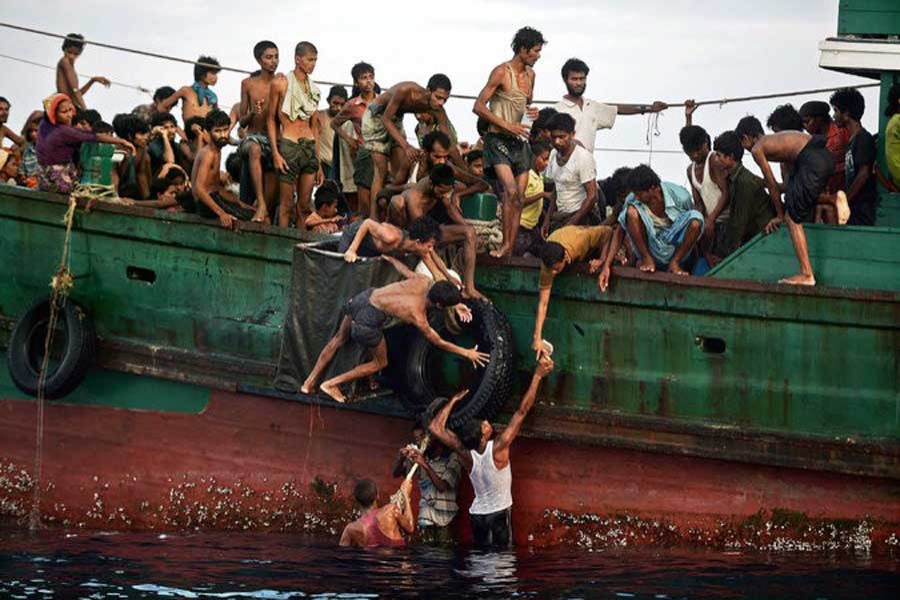It is not debatable anymore that what has been happening to the Rohingya Muslims in the Rakhine state of Myanmar is genocide and crimes against humanity. The brutal treatment meted out to the Rohingya for decades has shaken the moral fibre of the international community as they now realise that 'holocaust' is happening every day in this 21st century.
One may recall that the term "Genocide" was coined in 1944 by a Jewish lawyer Raphael Lemkin. In 1945, thanks in no small part to Lemkin's efforts, genocide was included in the charter of the International Military Tribunal set up by the victorious Allied powers in Nuremburg, Germany. The tribunal indicted and tried top Nazi officials for "crimes against humanity," which included persecution on racial, religious or political grounds as well as inhumane acts committed against civilians (including genocide). After the Nuremburg trials revealed the horrible extent of Nazi crimes, the UN General Assembly passed a resolution in 1946 making genocide punishable under international law. In 1948, the UN approved the Convention on the Prevention and Punishment of the Crime of Genocide (CPPCG), which defined genocide as any of a number of acts "committed with intent to destroy, in whole or in part, a national, ethnical, racial or religious group." This included killing or causing serious bodily or mental harm to members of the group, inflicting conditions of life intended to bring about the group's demise, imposing measures intended to prevent births (i.e. forced sterilisation) or forcibly removing the group's children. Genocide's "intent to destroy" separates it from other crimes of humanity, such as ethnic cleansing, which aims at forcibly expelling a group from a geographic area (by killing, forced deportation and other methods).The convention entered into force in 1951 and has since been ratified by more than 130 countries.
Though the CPPCG created an awareness that the evils of genocide existed, its actual effectiveness in stopping such crimes remained to be seen. No country invoked the convention during 1975 to 1979, when the Khmer Rouge regime killed some 1.7 million people in Cambodia, a country that had ratified the CPPCG in 1950 (Time magazine article titled A Brief History of Genocide, Dec. 09, 2008). However, since the mid-1990s, the international community has been taking cognizance of crimes against humanity - in Srebrenica, Darfur, Rwanda, former Yugoslavia, for example. In other words, the international community is no longer prepared to countenance the atrocities perpetrated by an authoritarian regime against unarmed civilians.
Already saddled with the burden of thousands of Rohingya refugees for decades, Bangladesh is obviously unable to bear the additional burden of the fresh influx of refugees who number about 400 thousand. They are being given temporary shelter until they are repatriated to their homeland. Prime Minister Sheikh Hasina, who is now in New York to attend the UN General Assembly (UNGA) session, intends to highlight the Rohingya exodus from Rakhine State at the world forum.
An argument goes like this: the world, already preoccupied with North Korea, Afghanistan, Syria, Yemen, South Sudan, Venezuela, would in due course forget the Rohingyas. But Bangladesh should not let such a thing to happen and knock on the door of the international community to ensure that their sense and sensibility do not go to sleep. For us the work is cut out. We should insist on the implementation of the recommendations by Kofi Annan Commission and the return of all Rohingya refugees to their homeland.
The writer is a former Ambassador and Secretary, Government of Bangladesh.


